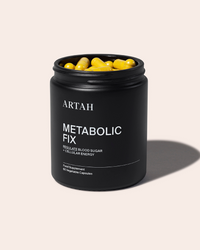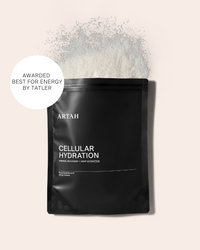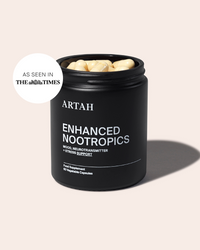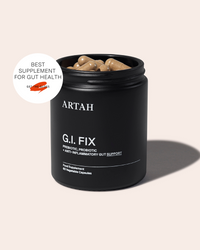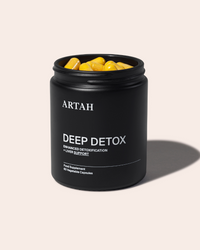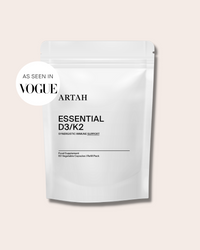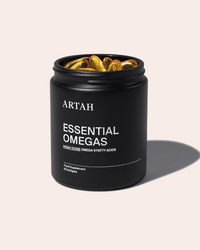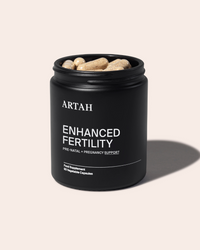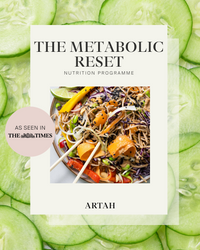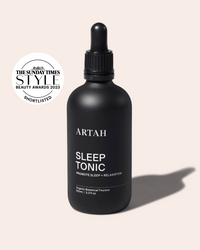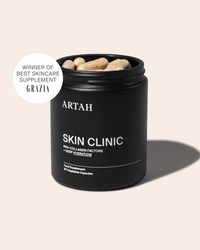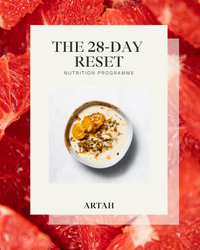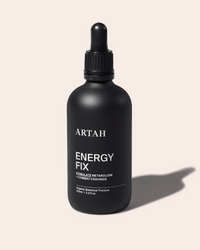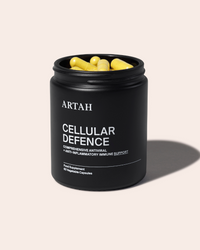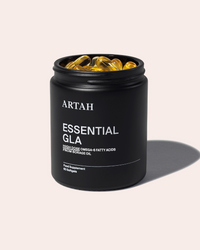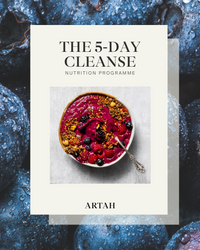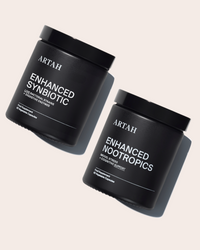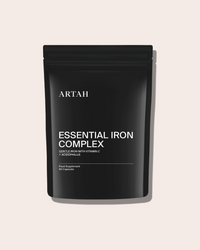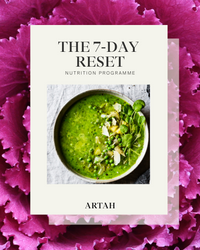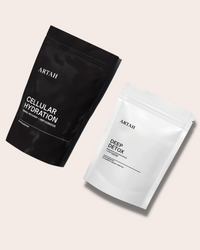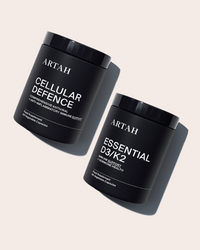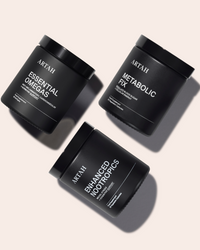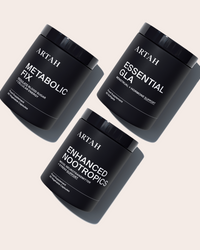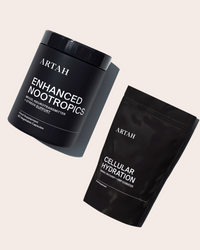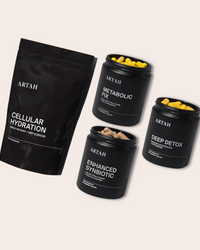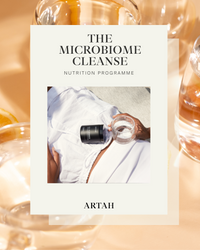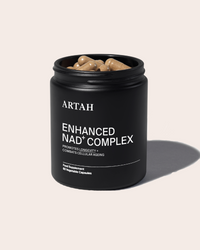What is Berberine?
Recently, the hype surrounding a herbal extract called Berberine, which is being dubbed ‘Nature’s Ozempic’ has skyrocketed, and for good reason. Berberine is a powerful phytonutrient with proven hypoglycaemic, anti-dyslipidemic and metabolism enhancing properties – in laymen's terms, it helps regulate blood sugar, fat storage and energy metabolism.
Ozempic (or Semaglutide) is an injectable medication for Type 2 Diabetes, and a hot topic of controversy. Initially, the drug was only available through prescription, however that changed when the FDA approved its use as a widespread treatment for obesity. Since then it’s taken the world by storm; in fact, the U.K. government has announced a £40m investment into a pilot scheme trialing the weekly weight loss injections in an effort to combat the obesity crisis in this country. But the widespread use of Ozempic has sparked a heated debate around the ethical and societal implications of endorsing quick fixes for weight loss over lifestyle modifications, especially when its side effects, which include a black box warning for thyroid cancer (the FDA’s highest-class safety-related warnings), are so extreme. Perhaps most importantly, the rapid growth in popularity amongst people with no medical requirement for the drug has led to widespread shortages, meaning the people who have risk of obesity-related complications who need it the most may not be able to access it.
Because of its proven effects on metabolism, Berberine is being compared to the drug, but the two are very different. Here's what you need to know.
First, let’s talk about how Ozempic works.
Ozempic and Wegovy are brand names for the drug Semaglutide, which belongs to a class of medications known as GLP-1 receptor agonists, or GLP-1 RAs, because it mimics the effects glucagon-like peptide-1, a natural hormone we release in response to eating. One of the roles of GLP-1 is to help reduce food intake and appetite through various actions on insulin and glucagon - two important hormones that govern our metabolism and fat storage. It also causes a delay in gastric emptying, which can help us feel full for longer. This action on the stomach may explain some of the most common side effects of the drug, which include nausea, diarrhoea, stomach pain and constipation. In addition to its long list of side effects, Semaglutide has a major drawback – participants tend to regain all of the weight lost when they stop taking it. In addition, it draws attention, and funding, away from the fundamentals of obesity management, which are long term changes to nutrition, lifestyle and exercise.
Enter Berberine.
Berberine is a phytonutrient that has been used in traditional medicines since 3000 B.C. and has over 20 years of clinical research to support its metabolic benefits. Its long list of actions are impressive; when it comes to metabolism, it has been shown to improve insulin sensitivity, increase the breakdown of glucose, reduce glucose production in the liver, increase nitric oxide production, slow carbohydrate absorption in the gut, inhibit adipogenesis (the formation of fat cells), stimulate fatty acid oxidation, encourage weight loss and improve mitochondrial function. There’s more – it also has anti-microbial, anti-inflammatory, antioxidant and neuroprotective properties. In traditional medicines, Berberine-containing botanicals are used for everything from improving energy, metabolic syndrome and weight management to immunity, inflammatory disorders and gut imbalances.
Berberine vs. Ozempic.
Yes, Berberine has a host of beneficial actions when it comes to weight management and overall metabolic health, but its mechanism of action differs from that of Ozempic. Whilst Ozempic works on GLP-1 receptors, Berberine exerts its metabolic effects through the activation of AMP-activated protein kinase (AMPK). AMPK is a central regulator of energy and is involved in a number of metabolic pathways involved in blood sugar management, insulin signalling, mitochondrial biogenesis, food intake and body weight.
When it comes to the gut, Berberine has some interesting properties. Because it has antimicrobial actions, concerns have been raised about whether it negatively impacts the health and diversity of our microbiome. Whilst more research is needed, early studies indicate that it has the opposite effect; it’s been shown to inhibit the growth of certain pathogenic bacteria, and promote the growth of beneficial bacteria like Akkermansia spp. This action underpins the use of Berberine in functional medicine as a supportive supplement for SIBO, and a 2014 study showed that herbal treatment of SIBO was as effective as treatment with the antibiotic Rifimaxin, without the negative side effects the antibiotic group experienced.
So, is Berberine Nature’s Ozempic?
Berberine is an effective, safe phytonutrient that has been shown to support blood sugar, weight loss, metabolic health, and mimic some of the effects of both Ozempic and Metformin. But let’s be clear; Berberine won’t lead to the rapid weight loss that Ozempic does. Ozempic is a synthetic drug whose effects are far from natural (and potentially dangerous for those who don’t have a medical need) and finding something in nature that mimics the action of such an extreme drug is unlikely. Instead, Berberine offers a healthier, effective way to activate cellular pathways that can improve metabolic health, which can be a great solution for those looking for metabolic support who don't need, or shouldn't be taking, such drastic pharmaceutical measures.
Where to get it.
- Berberine is one of the hero ingredients in our best-selling formula Metabolic Fix. It also contains Cinnamon - another AMPK booster - alongside Chromium, Alpha-Lipoic Acid, L-Carnitine and Inositol, making it a powerhouse for metabolic health.
- Insulin dysregulation, pre-diabetes, and high blood sugar can negatively impact female fertility. If you're trying to conceive go for Enhanced Fertility, which contains Alpha-Lipoic Acid, a powerful AMP-Kinase activator, alongside other targeted nutrients for blood sugar, ovulatory health and hormone balance.
- Like most things, a holistic approach is always best, so combining Metabolic Fix with a targeted nutrition routine to improve blood sugar control will enhance its effects. Try The Ultimate Metabolic Reset, our 21-day nutrition plan for fat loss and blood sugar support, which is paired with Metabolic Fix and Cellular Hydration.
- If you're looking to pair it with gut support to enhance its effect on the microbiome, try probiotic powerhouse Enhanced Synbiotic.
Resources:
-
Chaoran Dong, Jiaqi Yu, Yanan Yang, Fang Zhang, Wenquan Su, Qinhua Fan, Chongming Wu, Shengxian Wu. Berberine, a potential prebiotic to indirectly promote Akkermansia growth through stimulating gut mucin secretion, Biomedicine & Pharmacotherapy.Volume 139, 2021.Doi.org/10.1016/j.biopha.2021.111595.
-
Chang W, Chen L, Hatch GM. Berberine as a therapy for type 2 diabetes and its complications: From mechanism of action to clinical studies. Biochem Cell Biol. 2015 Oct;93(5):479-86. doi: 10.1139/bcb-2014-0107. Epub 2014 Dec 1. PMID: 25607236.
-
Dong H, Wang N, Zhao L, Lu F. Berberine in the treatment of type 2 diabetes mellitus: a systemic review and meta-analysis. Evid Based Complement Alternat Med. 2012;2012:591654. doi: 10.1155/2012/591654. Epub 2012 Oct 15. PMID: 23118793; PMCID: PMC3478874.
-
Aribeygi, H., Jamialahmadi, T., Moallem, S.A., Sahebkar, A. (2021). Boosting GLP-1 by Natural Products. In: Sahebkar, A., Sathyapalan, T. (eds) Natural Products and Human Diseases. Advances in Experimental Medicine and Biology(), vol 1328. Springer, Cham. https://doi.org/10.1007/978-3-030-73234-9_36
-
Francini F, Schinella GR, Ríos JL. Activation of AMPK by Medicinal Plants and Natural Products: Its Role in Type 2 Diabetes Mellitus. Mini Rev Med Chem. 2019;19(11):880-901. doi: 10.2174/1389557519666181128120726. PMID: 30484403.
-
Chedid V, Dhalla S, Clarke JO, Roland BC, Dunbar KB, Koh J, Justino E, Tomakin E, Mullin GE. Herbal therapy is equivalent to rifaximin for the treatment of small intestinal bacterial overgrowth. Glob Adv Health Med. 2014 May;3(3):16-24. doi: 10.7453/gahmj.2014.019. PMID: 24891990; PMCID: PMC4030608.






